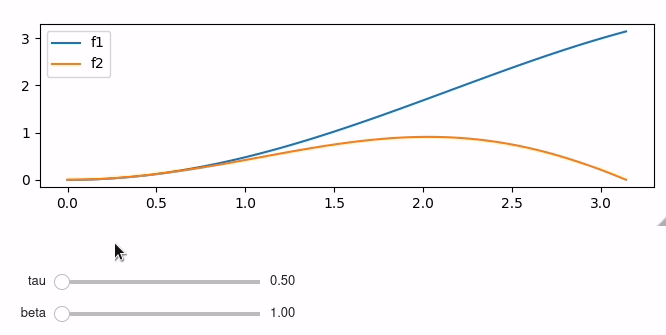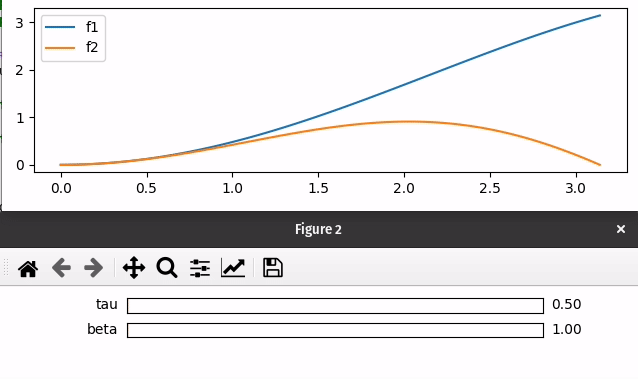mpl_interactions: Easy interactive Matplotlib plots¶
mpl_interactions’ aims to make it as easy as possible to create responsive Matplotlib plots. In particular, you can:
Better understand a function’s change with respect to a parameter.
Visualize your data interactively.
To achieve this, mpl_interactions provides:
A way to control the output of pyplot functions (e.g.
plot()andhist()) with sliders.A function to compare horizontal and vertical slices of heatmaps.
A function allowing zooming using the scroll wheel.
Installation¶
To install, simply run:
pip install mpl_interactions
To also install version of ipympl and ipywidgets that are known to work install the optional jupyter dependencies by running:
pip install mpl_interactions[jupyter]
Further instructions for installation from JupyterLab can be found on the Installation page.
Getting Help¶
If you have a question on using this library a great place to ask it is: https://discourse.matplotlib.org/c/3rdparty/18. Feel free to mention @ianhi in your post there.
Basic example¶
To control a plot with a slider:
# if running this code in a Jupter notbeook or JupyterLab
%matplotlib ipympl
import mpl_interactions.ipyplot as iplt
import matplotlib.pyplot as plt
import numpy as np
x = np.linspace(0, np.pi, 100)
tau = np.linspace(0.5, 10, 100)
def f1(x, tau, beta):
return np.sin(x * tau) * x * beta
def f2(x, tau, beta):
return np.sin(x * beta) * x * tau
fig, ax = plt.subplots()
controls = iplt.plot(x, f1, tau=tau, beta=(1, 10, 100), label="f1")
iplt.plot(x, f2, controls=controls, label="f2")
_ = plt.legend()
plt.show()
If you are in a Jupyter Notebook the output will look like this:

and from a script or ipython the output will use Matplotlib sliders:

Matplotlib backends¶
mpl_interactions’ functions will work in any Matplotlib backend. In most backends they will use the Matplotlib Slider and Radio button widgets. However, if you are working in a Jupyter notebook the ipympl backend then ipywidgets sliders will be used as the controls. Further discussion of the behavior as a function of backend can be found on the Matplotlib Backends page.
Follow the links below for further information on installation, functions, and plot examples.
Tutorials
Specific Functions